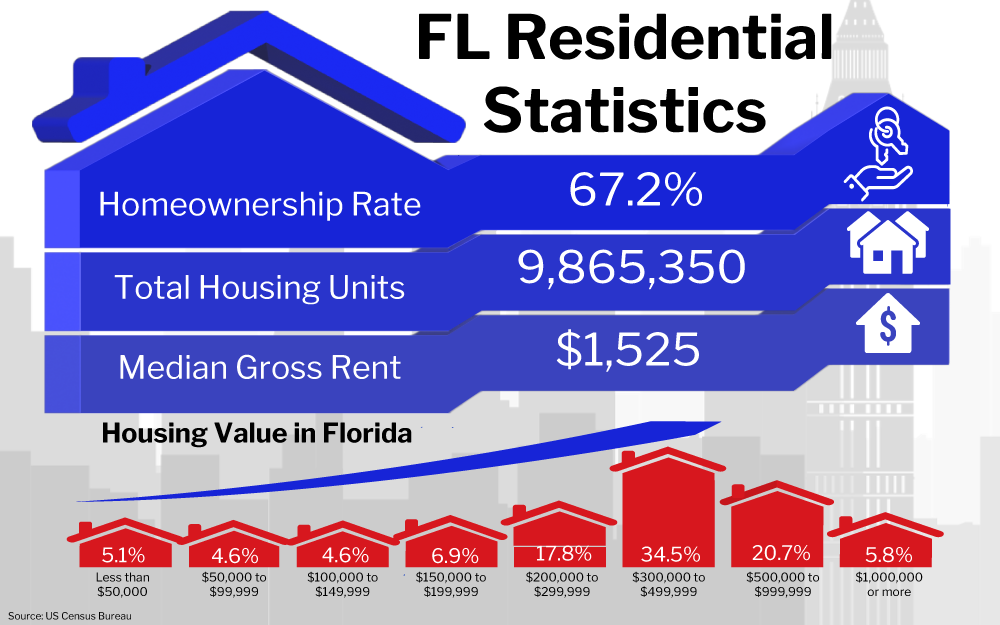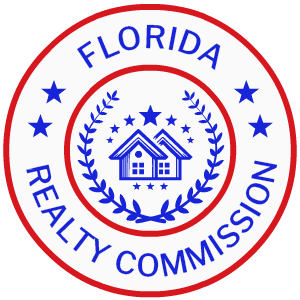
The income for a Florida real estate agent will vary greatly depending on the market in which an agent works, whether they are working full or part-time, experience, specialty, and experience. The average income can vary between about $25,000 to $163,000.
What’s the Income Range for Real Estate Agents in Florida?
Nailing down the most accurate income averages for any job can be challenging for a number of reasons, and this is especially true of commission-based ones. Do note that these are just averages and many agents can make much more.
For example, the average salary of a real estate agent in X area reported on a job recruiting site may be based on the reporting of only 20 people, so the true average could be a lot more or less. A first-year agent really hitting the grind may easily surpass the first-year income average.
So while the salary information you find online can give you a sense of income potential, these averages are just approximations.
Averages Broken Down by Experience
- Under 1 Year: $22,000
- 1-3 years: $43,629
- 4-10 years $79,452
- 11-25 years: $106,372
- 26+ years: $124,852
Averages Across Florida
- Pembroke Pines: $98,678
- Kissimmee: $96,285
- Orlando: $95,829
- Delray Beach: $95,585
- Melbourne: $ 94,901
- Davenport: $ 94,488
- Fort Meyers: $91,079
- Miami: $85,985
- Palm Harbor: $85,746
- Port St. Lucie: $84,417
- Jacksonville $83,956
- Tampa Bay: $83,418
Real Estate Agents Specialties
Many real estate agents specialize in certain types of properties or clients. In a commission-based business, it is not surprising that the Florida agents specializing in luxury real estate make the most money.
The most to least lucrative specialties in Florida are as follows:
- Luxury real estate
- Foreign investment
- Short sales and foreclosures
- Eco-friendly properties
- Commercial properties
- Relocation
- Military
- Investment properties
- Second vacation homes
- Multi-family properties
- Condos
- Property management/rentals
- Residential properties
- Affordable housing
- No specialty
Reestablishing Your Real Estate License and Reciprocity in Florida
Learn when and how to renew your real estate license in Florida below, along with the state’s reciprocity agreements:
Renewing Real Estate License
Florida real estate licenses must be renewed every two years, and expire either March 31st or September 2nd, depending on when you passed your licensing exam. The Florida Real Estate Commission will send a reminder about 60 days prior.
First-time renewals may occur anywhere from 18 months depending on when the exam was passed.
Licenses not renewed on time will automatically become inactive and can be activated again by completing the required 14 hours of continuing education within one year of the expiration date and paying the necessary renewal and late fees. If the continuing education requirement is not completed within one year, a 28-hour Reactive Education course will be required in addition to bringing the license back into good standing.
Education Requirements
Below are the requirements:
- Florida requires a 45-hour post-licensing course, including an exam, to be completed before the first license renewal. People with 4-year degrees in real estate are exempt from this requirement.
Maintain a copy of the certificate of completion in the event of an audit by the Department of Business and Regulation. - Subsequent renewals (the 2nd and beyond) require 14 hours of continuing education every 2 years. This includes 8 hours of specialty credit, 3 hours of Florida real estate law, and 3 hours of Business and Ethics.
The continuing education requirements are the same for agents, brokers, and broker associates.
Considerations for Certain Types of Agents
Agents with inactive licenses are not exempt from the 14-hour education requirement. Agents in good standing with the Florida Bar Association are exempt, however.
States With Reciprocal Agreements
As of October 2023, Florida has reciprocal agreements with the following 10 states:1
- Alabama
- Arkansas
- Connecticut
- Georgia
- Illinois
- Kentucky
- Mississippi
- Nebraska
- Rhode Island
- West Virginia
Note the following states no longer have a reciprocity agreement with the Florida Realty Commission:
- Colorado
- Oklahoma
- Indiana
- Tennessee
Criteria for Obtaining a License:
- Must be at least 18 years old and have a high school diploma or equivalent
- Must not be a resident of Florida at the time you apply
- Obtained current real estate license by meeting all the required examination and education requirements of the original state
- Pass an examination on Florida-specific law. Applicants must answer 30 of the 40 questions correctly
Once they pass and are licensed by the Florida Realty Commission, agents are subject to all the same renewal requirements as agents originally licensed in Florida.
References
1Department of Business and Professional Regulation – State of Florida. (2023). Sales Associate Initial Application – Mutual Recognition Application for Non-FL Residents Only (RE 1). myfloridalicense. Retrieved October 26, 2023, from <https://www.myfloridalicense.com/CheckListDetail.asp?SID=&xactCode=1011&clientCode=2501&XACT_DEFN_ID=747>
